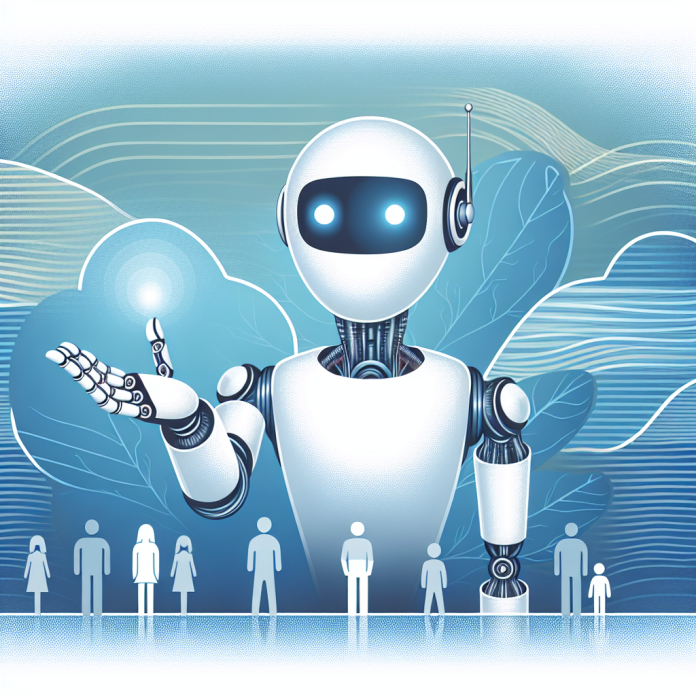Artificial Intelligence (AI) for Mental Health Support: Revolutionizing the Way We Approach Mental Well-being
In today’s fast-paced and hectic world, mental health issues are on the rise. From anxiety and depression to stress and burnout, more and more people are struggling to cope with the demands of modern life. Fortunately, advancements in technology, specifically in the field of artificial intelligence (AI), are offering new avenues for mental health support.
**The Role of AI in Mental Health**
AI is quickly becoming a critical tool in the mental health landscape. By leveraging machine learning algorithms and natural language processing, AI systems can analyze vast amounts of data to identify patterns and trends in patients’ behavior and emotions. This data-driven approach allows for more personalized and effective interventions, ultimately leading to better outcomes for individuals struggling with mental health issues.
**Early Detection and Intervention**
One of the key benefits of AI in mental health is early detection and intervention. Traditional methods of diagnosing mental health disorders often rely on self-reporting, which can be subjective and prone to bias. AI, on the other hand, can analyze a wide range of data sources, including social media posts, text messages, and even voice recordings, to detect subtle changes in language and behavior that may indicate a mental health issue.
For example, a recent study conducted by researchers at Stanford University found that AI algorithms could accurately predict whether an individual was at risk of developing depression based on their social media activity. By analyzing language patterns and sentiment in posts, the AI system was able to identify individuals who were exhibiting early signs of depression, allowing for timely intervention and support.
**Personalized Treatment Plans**
Another significant advantage of AI in mental health is the ability to create personalized treatment plans for individuals. Traditional therapy approaches often follow a one-size-fits-all model, which may not be effective for everyone. With AI, treatment plans can be tailored to meet the unique needs and preferences of each individual, leading to more successful outcomes.
For example, Woebot is a chatbot that uses AI to deliver cognitive-behavioral therapy to individuals struggling with anxiety and depression. Through daily conversations and interactive exercises, Woebot helps users identify negative thought patterns and develop coping strategies to improve their mental well-being. By adapting its responses based on the user’s inputs, Woebot provides a personalized and engaging therapy experience that is accessible anytime, anywhere.
**Breaking Down Barriers to Care**
One of the biggest challenges in mental health care is the stigma and barriers that prevent individuals from seeking help. AI has the potential to break down these barriers by providing anonymous, convenient, and cost-effective support options. Virtual therapy platforms, such as Talkspace and BetterHelp, use AI to match individuals with licensed therapists and provide therapy sessions via messaging, phone, or video calls.
By offering a more accessible and discreet way to access mental health support, AI is helping to reach individuals who may have otherwise avoided seeking help. This is particularly crucial in underserved communities and rural areas where access to mental health services is limited.
**Ethical Concerns and Limitations**
While AI holds great promise for revolutionizing mental health care, it also raises important ethical concerns and limitations. Privacy and data security are major concerns when using AI for mental health support, as sensitive information is often involved. Ensuring that AI systems comply with strict privacy regulations and safeguards is essential to protect the confidentiality of individuals seeking help.
Moreover, AI is not a replacement for human therapists and clinicians. While AI tools can augment and support traditional therapy approaches, they should not be seen as a substitute for human interaction and empathy. Building trust and rapport with a human therapist remains a critical component of effective mental health treatment.
**Looking Ahead**
As AI continues to evolve and improve, the possibilities for its application in mental health support are endless. From early detection and personalized treatment plans to breaking down barriers to care, AI has the potential to revolutionize the way we approach mental well-being.
By leveraging the power of AI to analyze data, deliver therapy, and support individuals in need, we can create a more inclusive and effective mental health care system. While ethical considerations and limitations must be carefully addressed, the potential for AI to transform mental health support is truly exciting.
In conclusion, AI is not just a buzzword in technology circles; it is a powerful tool that is reshaping the landscape of mental health care. By harnessing the capabilities of AI to provide personalized, accessible, and effective support, we can make significant strides in improving the mental well-being of individuals around the world. It is time to embrace the potential of AI for mental health support and pave the way for a brighter and healthier future for all.

